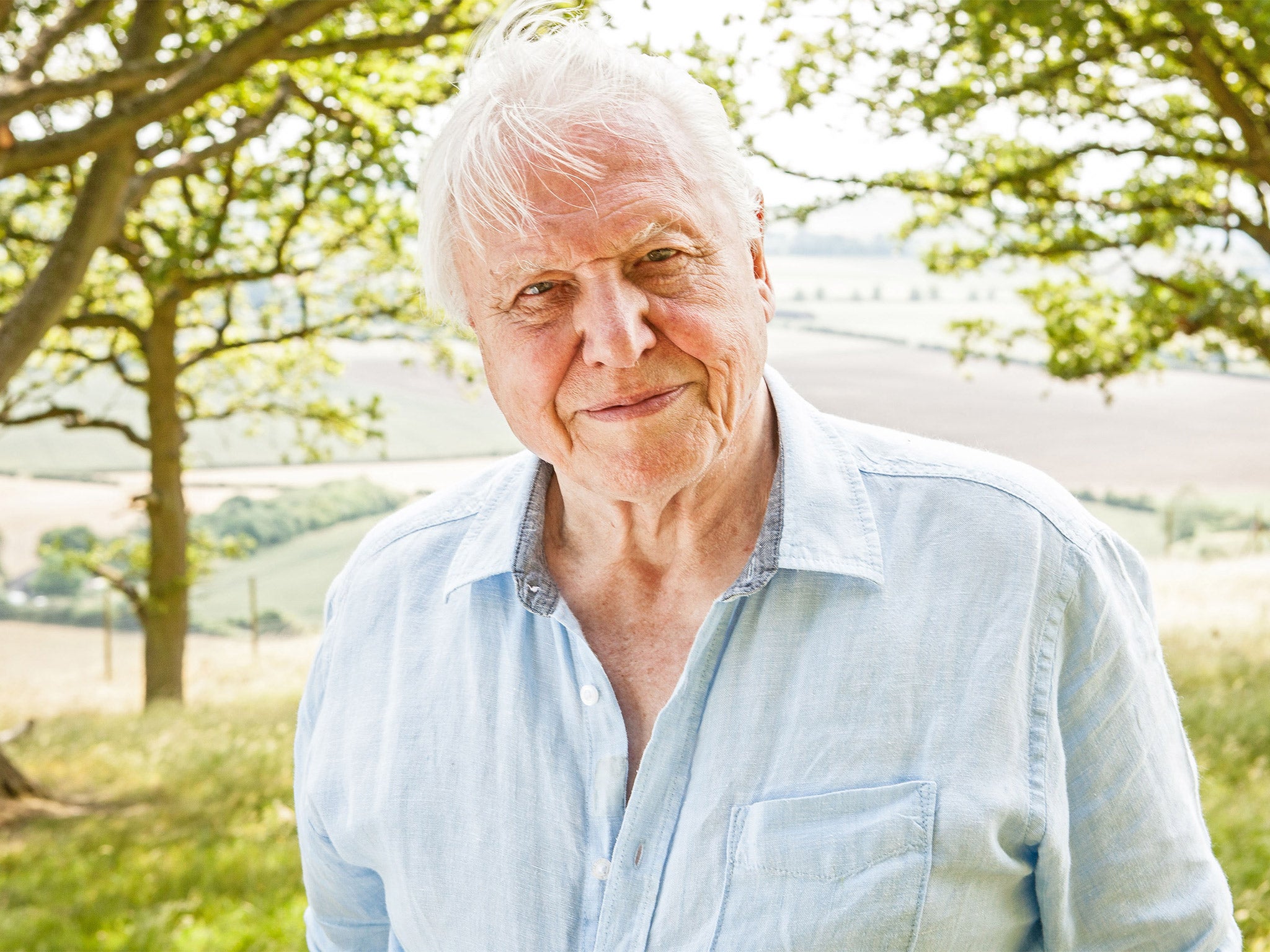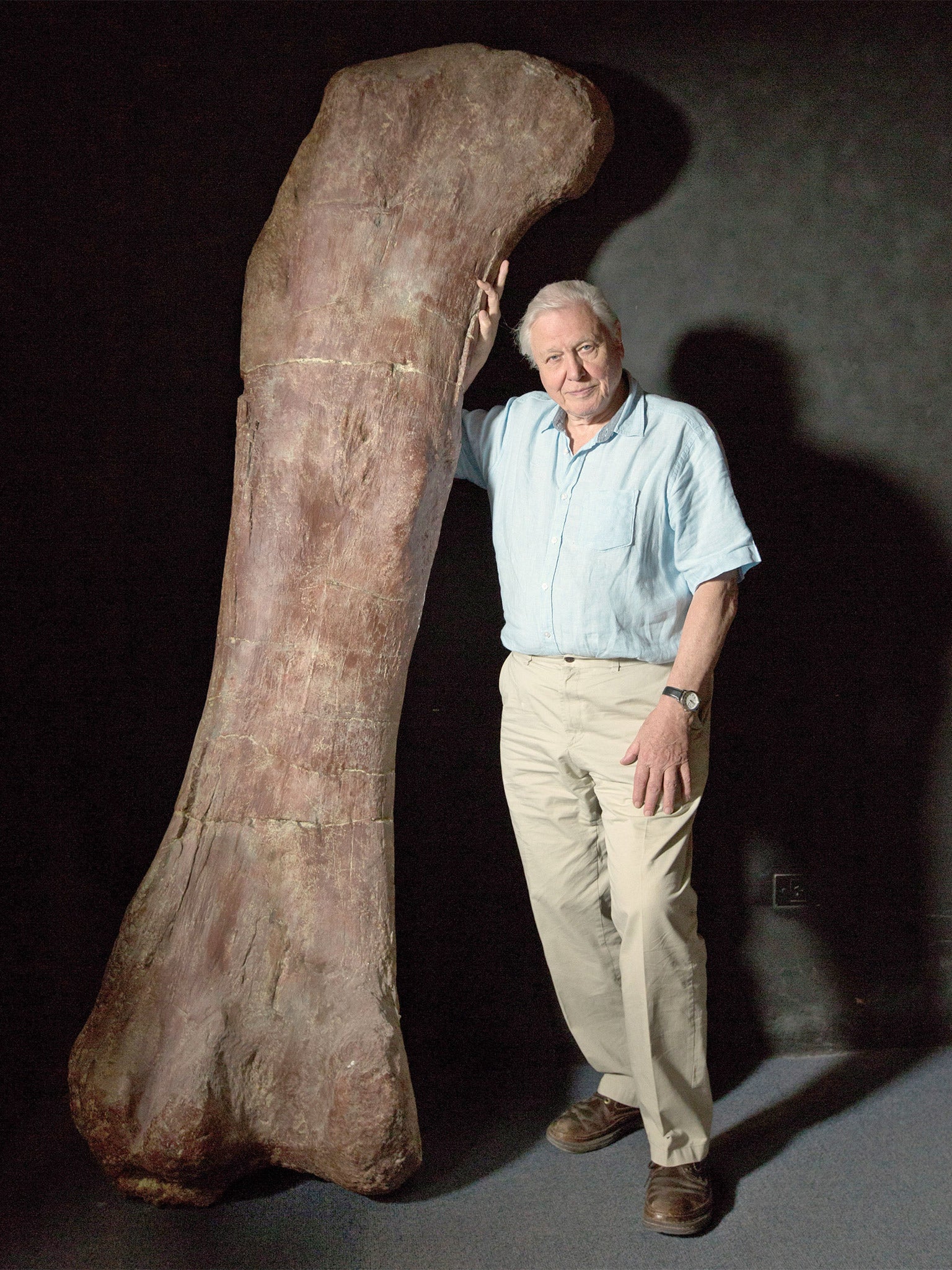Sir David Attenborough interview: Broadcaster on his new TV show and turning 90
The great naturalist said he had no secret to long life - 'I don’t do any exercise or anything'

Your support helps us to tell the story
From reproductive rights to climate change to Big Tech, The Independent is on the ground when the story is developing. Whether it's investigating the financials of Elon Musk's pro-Trump PAC or producing our latest documentary, 'The A Word', which shines a light on the American women fighting for reproductive rights, we know how important it is to parse out the facts from the messaging.
At such a critical moment in US history, we need reporters on the ground. Your donation allows us to keep sending journalists to speak to both sides of the story.
The Independent is trusted by Americans across the entire political spectrum. And unlike many other quality news outlets, we choose not to lock Americans out of our reporting and analysis with paywalls. We believe quality journalism should be available to everyone, paid for by those who can afford it.
Your support makes all the difference.As he prepares to celebrate reaching 90 in May, Sir David Attenborough knows he has already been given two of the best birthday presents imaginable.
The globally-recognised broadcaster, who recently journeyed to Patagonia to film the bones of the world’s largest-known dinosaur – including a femur measuring nearly 8 feet (2.4 metres) – said that operations on his own legs had given him greater mobility than he had when making iconic series such as Planet Earth, Life in Cold Blood, and Africa.
“I’ve got two new knees and it has made a huge difference to my life. I see film that I shot ten years ago and I think ‘Who’s this crooked old senile chap creeping around?’, and it’s a shock that it’s me. But the mechanics of the knees go, because you’ve used your knees quite a lot, [and] to have two new ones is just a tremendous new lease of life.”
It was during an enchanting sequence in which Sir David was filmed kneeling with a blind baby rhino in Africa three years ago that he realised he had a problem. Having had the operations he said he felt able to make two or three natural history programmes a year “if anybody wants them”. The broadcasting titan, who returns to BBC1 on Sunday with Attenborough and the Giant Dinosaur, has been busier than ever in recent months, and won plaudits over Christmas for his BBC series Great Barrier Reef with David Attenborough.
The BBC is preparing a filmed tribute to mark Sir David’s birthday but the broadcaster is not keen on a nostalgia trip in the mould of This is Your Life. Mike Gunton, Creative Director of the BBC Natural History Unit, said Sir David wanted to explore the current status of species he has highlighted in his career. “He wanted very much to talk about the future, what is interesting going forward, rather than [be] retrospective.”
Attenborough and the Giant Dinosaur involved filming in southern Argentina at a time when Jeremy Clarkson and the former Top Gear team had embroiled the BBC in a diplomatic row by infuriating Argentinean politicians and mobs with supposed references to the Falklands war. But Sir David, who worked closely with the Museum of Paleontology in Trelew, Argentina, said he had been treated with great hospitality.
“Argentineans, by and large, are very pro-British. The Malvinas or the Falklands [conflict], whichever you wish to call them, was a cause of deep pain and agony to a substantial proportion of the Argentinean people. I hope we behaved with reasonable sensitivity but everybody was extremely kind to us.”

Asked about the Top Gear row, he said: “I think one should behave with some sensitivity to one’s hosts - if you wish to be treated as a guest you behave that way.”
Patagonia’s plant-eating Titanosaur was measured at 37 metres in length – equivalent to the length of four London buses and bigger than any previously-known creature. “This animal was 10 per cent larger than Argentinosaurus, the previous record holder. So we have discovered the largest dinosaur ever known,” said Sir David.
In the film, he visits the isolated dig site where 220 of the creature’s bones were discovered, and another location where a vast area is littered with the shell of dinosaur eggs, including one fragment bearing the skin of a baby dinosaur.
Sir David said older generations were not always aware that new dinosaur discoveries were being made all the time. “Kids, if they are interested at all, are likely to know more about dinosaurs than their parents,” he said. “I bet not many parents know what an Argentinosaurus is.”
His unfulfilled ambition to “swim with a whale shark” is probably beyond him but he is already working on a project on Bioluminescence, featuring “animals that glow in the dark”.
As he reaches the twilight of his career, he warned colleagues in natural history programming that they were working in an industry that has its own Darwinian code. “There’s no safe job in television, it’s changing all the time,” he said. “With the technology of television changing at the speed of light everybody has to make sure they’re doing something which has value. There’s no guarantee.”
With the BBC undergoing cuts following reductions in its budget, Sir David said that the broadcaster’s famed Natural History Unit had a global role in explaining changes in the natural world.
“The Natural History Unit’s output has contributed something of considerable significance to human comprehension. I think it has produced an audience that is better informed about the natural world than ever in history,” he said.
“It has come at just the right time because if ever a population had to know about the natural world, what is happening to it, how we can protect it, and why it is being damaged, it is now. The Natural History Unit’s spreading of that information and understanding is of great importance internationally.”
The great naturalist said he had no secret to long life - “I don’t do any exercise or anything” – but felt a duty to make the most of it. “If you are feeling reasonably chipper it seems almost blasphemous not to take advantage of it. To feel great and then to say ‘Well, I’m just going to sit in the corner and do nothing’ doesn’t seem to be sensible.”
Attenborough and the Giant Dinosaur is on BBC1, Sunday 24 January, 6.30pm
Join our commenting forum
Join thought-provoking conversations, follow other Independent readers and see their replies
Comments